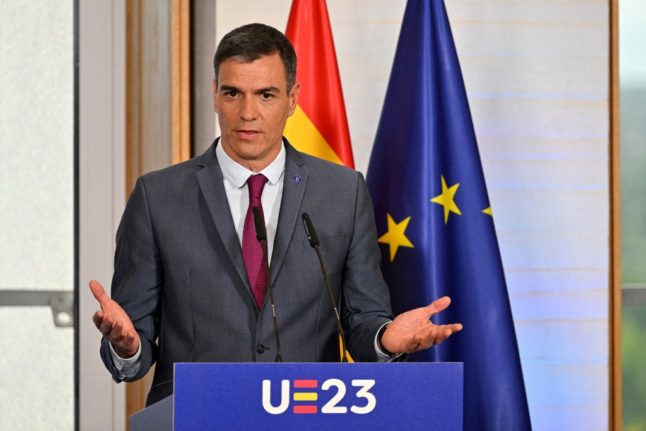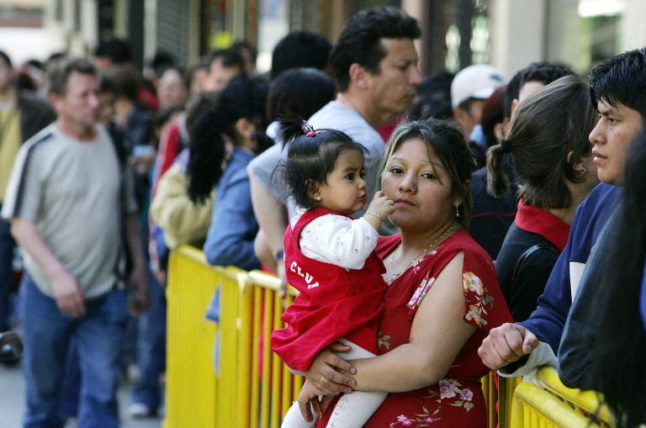Officials are hoping for a deal to relocate migrants seeking asylum across the 27-nation bloc, amid claims by countries such as Italy, Greece and Spain that they are unfairly burdened as the main points of arrival.
The nationalist governments in Hungary and Poland in particular have opposed the redistribution plan, in a dispute that flared last week during a European Union summit meeting.
“I hope… we will be able to settle this major issue during this term,” Spanish Prime Minister Pedro Sánchez told a press conference with EU Commission chief Ursula von der Leyen.
“For Spain, this would be significant and even symbolic from a political point of view… after years of migrant crises,” he said, insisting on the need for “coordination and cooperation”.
Warsaw and Budapest baulked at the summit declaration last week that would have enshrined a general EU agreement for member states to share out the hosting of asylum-seekers — or pay those that do.
Both countries say any such accord should be approved unilaterally, instead of by qualified majority.
“We have agreed several times already that, since the migrant issue deeply divides us, that we cannot accept the decision unless everyone agrees,” Hungary’s Prime Minister Viktor Orban said at the summit in Brussels on Friday.
But in June, EU interior ministers agreed that policy decisions on asylum-seekers would be reached by qualified majority — representing 15 of the 27 EU members, and at least 65 percent of the bloc’s population.
Decision by qualified majority is “enshrined in the treaties”, Sanchez said, “and there is no greater political legitimacy than that of respecting treaties”.
“On the migration topic… the first important parts have been decided, like the treaty wants us to do, in qualified majority voting,” von der Leyen said.
“That’s what the treaty says and that’s what we have delivered.”



 Please whitelist us to continue reading.
Please whitelist us to continue reading.
Member comments